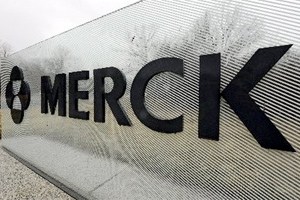 Cipla has succeeding in breaking another Indian patent held by Merck & Co, this time persuading the national patent office to revoke protection for a combination asthma drug.
Cipla has succeeding in breaking another Indian patent held by Merck & Co, this time persuading the national patent office to revoke protection for a combination asthma drug.
The patent – covering an aerosol suspension formulation of the corticosteroid mometasone furoate and long-acting beta agonist formoterol fumarate – was awarded in March 2011 and almost immediately opposed by Cipla, which is a major supplier of generic respiratory medicines in India.
On December 10 India’s Intellectual Property Appellate Board (IPAB) revoked the patent on the grounds that the combination was known and there was no inventive step in the claimed formulation, which replaced chlorofluorocarbon (CFC) propellants with more environmentally-friendly hydrofluoroalkanes (HFAs).
The patent was originally filed in 2004 by Schering-Plough, which was acquired by Merck in 2009 for around $41bn. The company currently markets the mometasone furoate/formoterol fumarate combination in the US as Dulera, but withdrew its bid for a European licence in 2010.
While the product covered by the patent is a minor one, the text of the decision makes reference to a number of intellectual property (IP) strategies adopted by multinational pharma companies for combination respiratory medicines, so could be cited in future cases involving asthma or chronic obstructive pulmonary disease (COPD) drugs.
The move is the latest in a series of defeats for brand-name drug manufacturers in India. Last month, the IPAB revoked a patent on Roche’s hepatitis C drug Pegasys (peginterferon alfa-2a) on the grounds of ‘obviousness’ and because Roche had failed to show it was more efficacious than its older, non-pegylated version of the drug.
That case followed the revocation of Pfizer’s patent on cancer drug Sutent (sunitinib), as well as Bayer’s failure to overturn a compulsory license which removed patent protection for its Nexavar (sorafenib) product. Roche also lost a four-year legal dispute with Cipla over patent rights to Tarceva (erlotinib) earlier this year.
Meanwhile, Cipla has a history of taking on and breaking Merck patents in India. Earlier this year the company filed a bid to secure a compulsory license for the multinational’s HIV drug Isentress (raltegravir) on the grounds that the integrase inhibitor “is not available in the market at reasonable and affordable price”.




